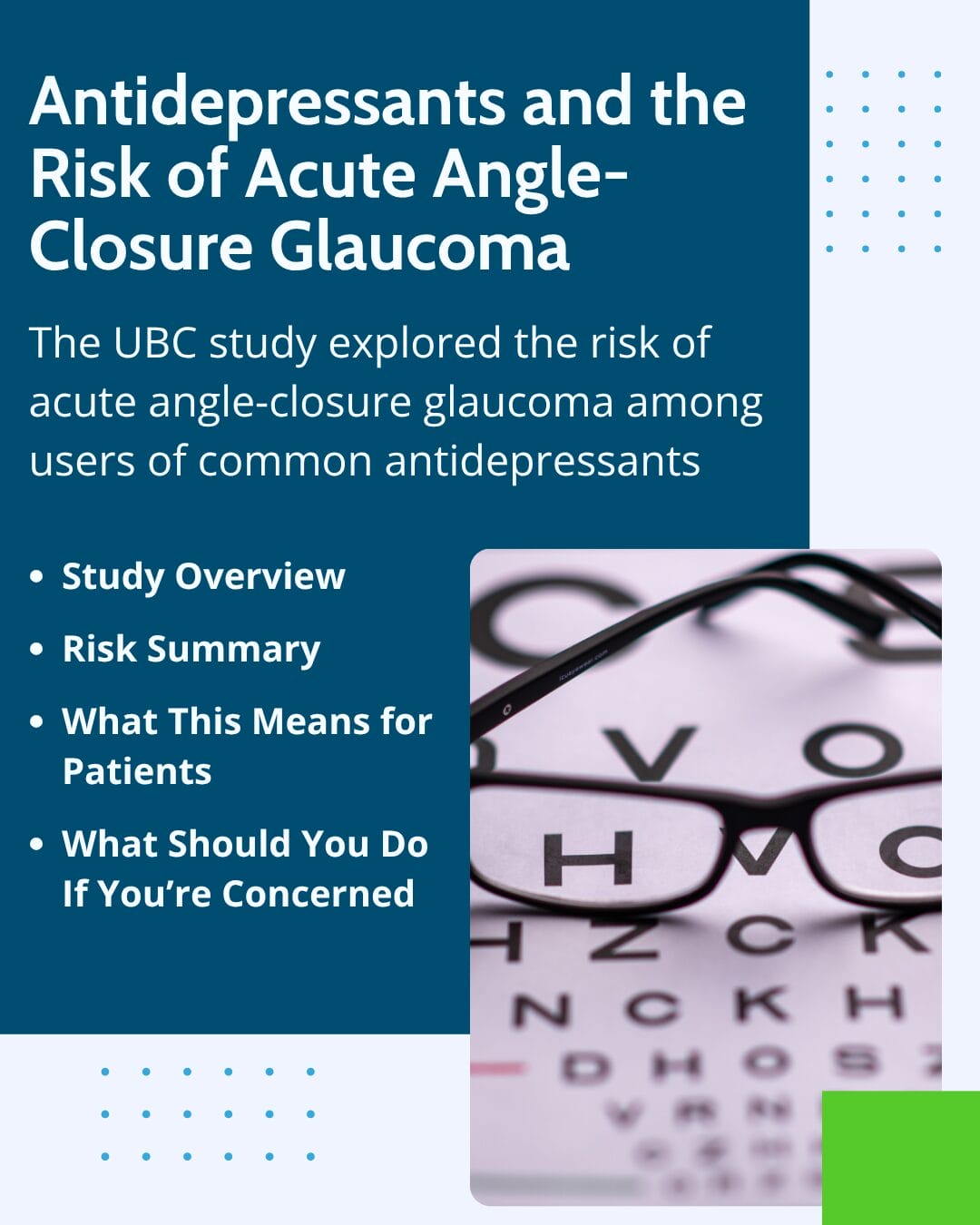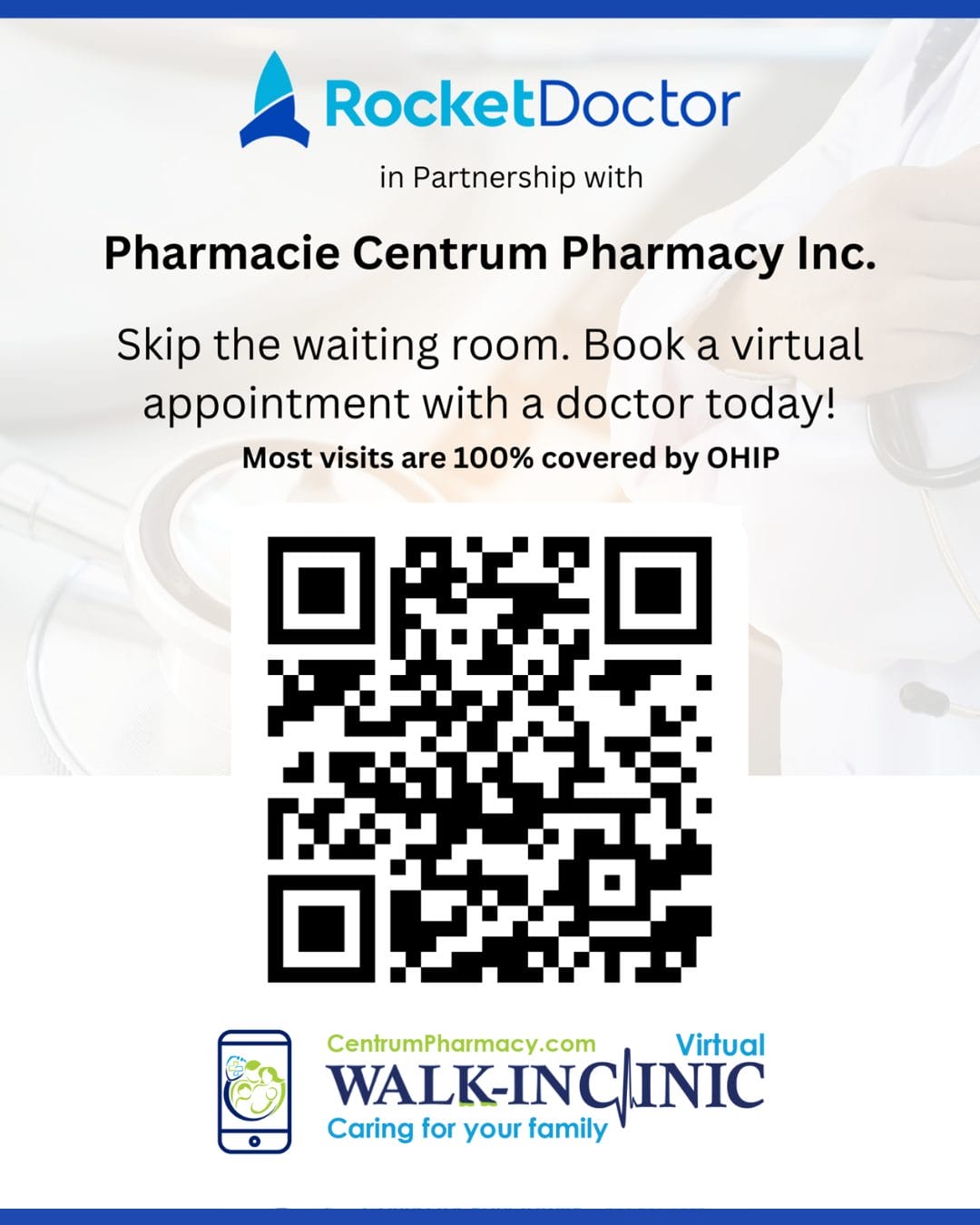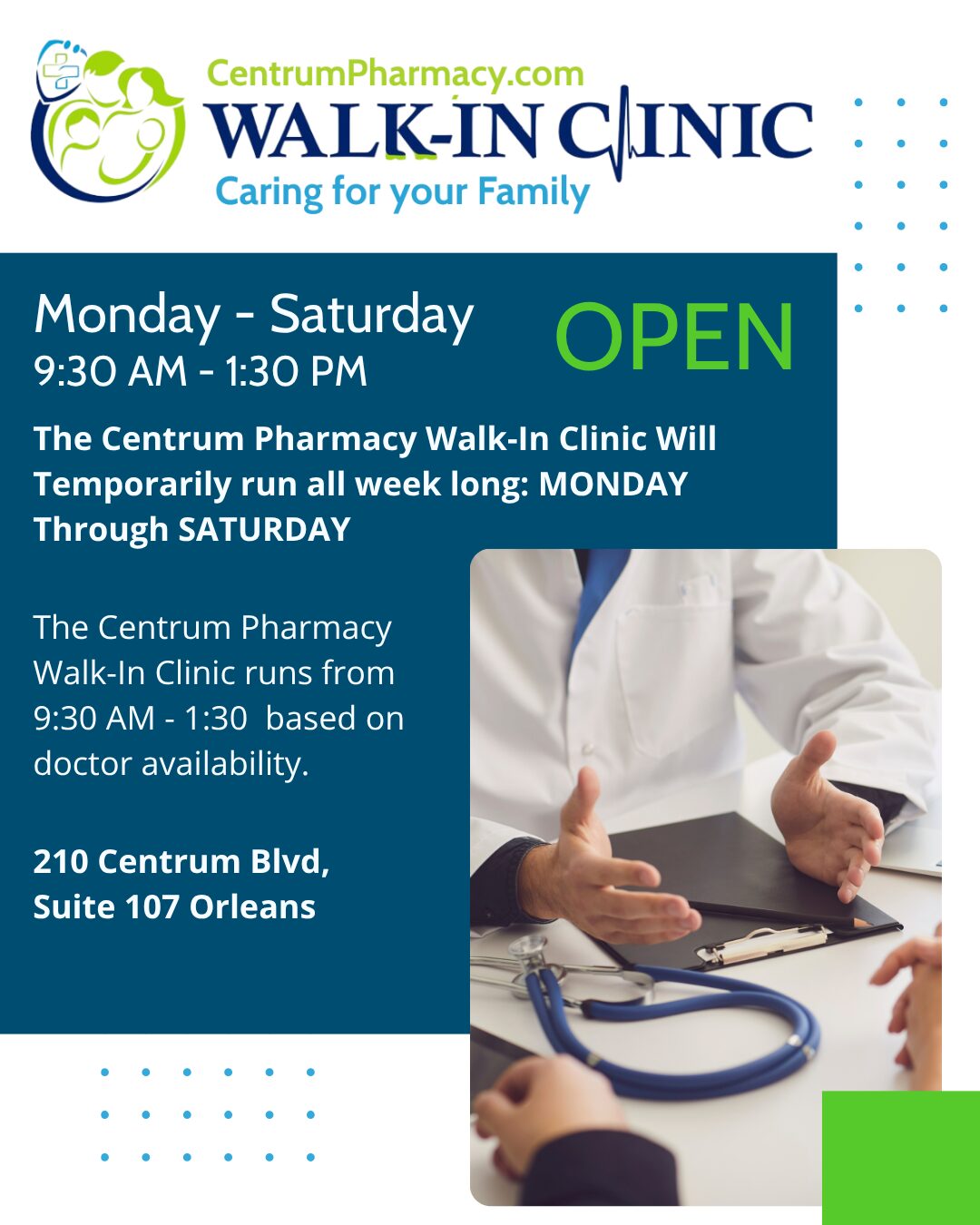At Centrum Pharmacy, our pharmacists stay current with the latest research in drug therapy so we can better counsel our patients on the safest and most effective medication options for their individual needs. A recent Canadian study conducted by researchers at the University of British Columbia (UBC) is a perfect example of research that informs—but does not dictate—our approach to care.
The UBC study explored the risk of acute angle-closure glaucoma (AACG) among users of commonly prescribed antidepressants, particularly selective serotonin reuptake inhibitors (SSRIs). AACG is a rare but serious eye emergency that can lead to vision loss if not promptly treated.
Study Overview
UBC researchers used a large health claims database covering over 16 million patients to conduct a nested case-control study. They looked at new users of:
- Escitalopram
- Citalopram
- Sertraline
- Venlafaxine (a serotonin–norepinephrine reuptake inhibitor)
The goal was to compare the risk of AACG among these medications using sex-adjusted hazard ratios.
What They Found
- The total study cohort included 865,546 patients, with 589 cases of AACG and 2,356 matched controls.
- The distribution of prescriptions was:
- 41.4% escitalopram
- 24.1% sertraline
- 20.0% venlafaxine
- 14.4% citalopram
Risk Summary:
Compared to sertraline (the reference drug):
- Citalopram: 48% lower risk (RR=0.52), but not statistically significant
- Escitalopram: RR=0.94 (NS)
- Venlafaxine: RR=0.79 (NS)
These trends persisted even in longer-term users (≥2 years of continuous use).
What This Means for Patients
While the study suggests that citalopram, escitalopram, and venlafaxine may pose a lower risk of AACG than sertraline, none of the differences were statistically significant.
More importantly, risk of AACG is not equally distributed across the population. As ophthalmologist Dr. Gerald Goldlist rightly pointed out:
“The patients who develop angle closure have a specific configuration that makes them susceptible… The pre-disposition to angle-closure glaucoma is a separate issue and not related to which drug is used. The appropriate psychiatric drug should be the primary reason for choice.”
At Centrum Pharmacy, we couldn’t agree more. Each patient is different, and our pharmacists know that antidepressant selection must be primarily based on clinical effectiveness and tolerability for the condition being treated—whether it’s depression, anxiety, OCD, or PTSD.
We consider research data as part of a larger decision-making picture. Our pharmacists work collaboratively with prescribers and patients to professionally interpret study results, screen for individual risk factors, and help guide choices that are evidence-informed but personally appropriate.
What Should You Do If You’re Concerned?
- Do not stop your antidepressant without medical advice.
- Discuss any history of eye issues with your doctor or pharmacist.
- If needed, an eye exam can determine if you’re at higher risk of AACG.
- Trust that your healthcare team will tailor treatment to balance mental health benefits and individual risks.
We’re Here to Help
Our Centrum pharmacists are trained to interpret both emerging and established clinical data. We help you make sense of it all—so you can make confident, informed decisions about your medications.
Have questions about your antidepressant or other medications? Call or visit us today—we’re always happy to help.
If you found this article helpful, don’t forget to like, share, and Follow to stay up to date on our latest health tips, pharmacy updates, and wellness advice.
Stay Connected with Centrum Pharmacy!
If you found this article helpful, don’t forget to like, share, and Follow to stay up to date on our latest health tips, pharmacy updates, and wellness advice.
Come for the Convenience, Stay for the Service.
Caring for Your Family Since 1999
Disclaimer: The medical information on this site is provided as an information resource only and is not to be used or relied on for any diagnostic or treatment purposes. This information does not substitute for professional diagnosis and treatment. Please do not initiate, modify, or discontinue any treatment, medication, or supplement solely based on this information. Always seek the advice of your healthcare provider first. Full Disclaimer.




